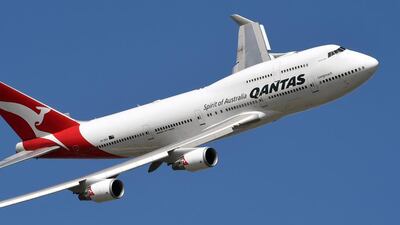Time is running out for Boeing’s iconic 747 jumbo jetliner, the plane that brought global travel to the masses in the 1970s.
The storied 747 has fallen from favour in the modern airline industry as carriers turn to twin-engined aircraft that can fly farther and use less fuel, such as Boeing’s own 777 or the Airbus A350. Sales of the cavernous freight model have waned as well, done in by an eight-year slump in global air shipping.
The plane cannot even catch a break in Washington. An order to replace the quarter-century-old 747s used as Air Force One to ferry US presidents is running into congressional budget flak.
Now, as Boeing weighs the 747’s future, a revival hinges heavily on an unlikely source: a Russian freight company that promises to buy 18 over the next few years. If that pledge falls through, and finding financing will not be easy, Boeing faces a choice: end production and take a financial hit, or try to limp along until a cargo rebound yields more sales. Boeing’s backlog is enough to keep building 747s only to mid-2017.
“The question is, can they get enough orders in the next five years to keep the production line open?” says George Dimitroff, the head of valuations for consultant Ascend Worldwide. “If they close it, there is nothing to replace it.”
Boeing’s strategy in recent years has been to cut output repeatedly, with another pullback due in March. Still, the current 747-8 is about one-third larger than its closest rival and its ability to load massive cargo through a hinged nose remains attractive to some shippers. Dropping the jet now could create an accounting loss for some of the US$1.89 billion in deferred costs, filings show.
“I don’t want to sugarcoat this: it has been a tough market,” says Randy Tinseth, a Boeing vice president for marketing. “It continues to be a tough market. We have some near-term opportunities. We also have airplanes we need to sell.”
Known as the “Queen of the Skies” for its piano bars and spiral staircases, the distinctive hump-nose, four-engine 747 was introduced in 1970, ushering in an era of long-range travel and jets with two aisles. It has gone on to log orders for more than 1,500 of its various models, making it one of the best-selling planes in aviation history. The 747-8 cannot claim much of that glory: it accounts for only 121 orders and debuted in 2011.
This year, Boeing has netted only two 747 sales, matching its 2014 total. The latest customer: itself. Boeing’s finance division bought two 747 freighters and leased them in November to AirBridgeCargo Airlines and Moscow-based parent Volga-Dnepr Group. The 747-8 lists for about $380 million, before the usual steep discounts.
AirBridgeCargo’s pledge to buy 18 additional jets would almost double Boeing’s unfilled orders as of the end of last month. But Russia’s economic slump and a 60 per cent drop in the rouble will challenge the carrier’s ability to convert that promise to a purchase. (Aircraft sales are exempt from Ukraine-related commercial sanctions imposed on Russia.)
AirBridgeCargo is confident it will buy the planes to meet rising cargo volumes, says the executive vice president, Denis Ilin. It plans to acquire three 747-8s next year and then two or three more annually until 2022, he says. The carrier’s specialities including moving oversize and heavy cargo such as oil and gas drilling equipment, escalators and even wings for Boeing’s 787 Dreamliner jets.
“I’m not talking about a huge peak season, but it’s been quite positive,” Mr Ilin says.
Boeing is working toward paring 747 output to one plane a month, a rate that will take effect in March, and executives are studying an even deeper cut, says the chief financial officer Greg Smith.
No commercial-jet model has lasted more than a year or two on freighters alone, says the aerospace consultant Richard Aboulafia. “Programmes with backlogs like these don’t survive very long,” he says. “Either a cutback or death as soon as the Air Force One planes are built.”
There is another possible surge ahead as package-haulers like United Parcel Service start to phase out older freighters. Boeing expects that more than 250 aircraft will need to be replaced over the next five to 10 years.
“As long as demand is there, and demand makes sense from a production point of view, we’ll keep building the airplane,” Mr Tinseth says.
business@thenational.ae
Follow The National's Business section on Twitter

